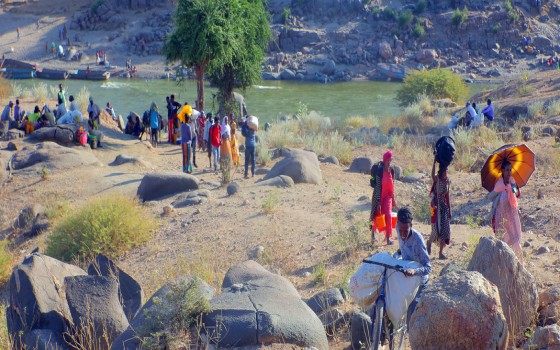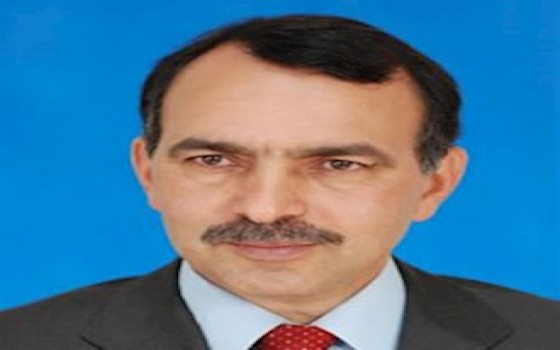
The world is failing to deliver on its promises regarding the sustainable development goals .. Prepared by Dr. Abdel Moneim Sedky, Professor at the Agricultural Research Center - Egypt

- Europe and Arabs
- Thursday , 21 November 2024 10:8 AM GMT
A UN report in March and another in June 2024 showed that the world is facing a triple planetary crisis, including climate change, biodiversity loss, pollution and waste. The global economy is consuming more natural resources, and the world is not on track to achieve the Sustainable Development Goals. The 2024 edition of the World Resources Outlook highlights the importance of resources for the effective implementation of the 2030 Agenda and multilateral environmental agreements. The report combines data, models and assessments to analyse trends, impacts and distributional effects of resource use. One report shows that rising global resource use trends have continued or accelerated since the 2019 edition, and demand for resources is expected to increase in the coming decades. Without urgent action, resource extraction could rise by 60% from 2020 levels by 2060, increasing damage and risks. However, the report also suggests that these trends can be reversed and humanity put on a path to sustainability. The world has failed to deliver on its promises on the Sustainable Development Goals, with only 17% of the goals still on track with just six years to go. Progress on the goals has fallen far short of what is needed. The SDGs are the blueprint for a more resilient and prosperous world. Nearly half of the goals have shown little or moderate progress, and more than a third are stalled or regressing. Progress has been severely hampered by the lingering effects of the COVID-19 pandemic, escalating conflicts and geopolitical tensions, and growing climate chaos. Serious action is needed to phase out unsustainable activities, accelerate responsible and innovative ways of meeting human needs, and create the conditions for social acceptance and equity in the necessary transformations. Achieving sustainability requires integrating resources into the implementation of multilateral environmental agreements, setting pathways for sustainable resource use, and providing appropriate financial, trade and economic incentives. The path to sustainability has become steep and narrow, and the key question now is how to get there now. The latest report highlights examples of success and resilience that can be built on through hard work, such as recent strides in renewable energy deployment, women in most regions reaching parity and even outpacing men in completing education at all levels, and internet access growing by 70% in just eight years. The fight against HIV/AIDS provides a model for overcoming other epidemics through global solidarity and financing breakthroughs. Key SDG moments include the International Conference on Financing for Development and the World Summit on Social Development in 2025. However, political statements must be translated into action urgently, and action is needed now. Key findings include slowing GDP per capita growth in half of the world’s most vulnerable countries, unusually high food prices, and 55% of countries lacking non-discrimination laws that prohibit direct and indirect discrimination against women. Global unemployment reached a historic low of 5% in 2023, yet persistent barriers to decent work remain. Global renewable energy capacity is expanding at an unprecedented rate, with mobile broadband (3G or higher) now available to 95% of the world’s population, up from 78% in 2015. Rising ocean temperatures have caused the world’s fourth-largest coral bleaching event, and external debt stocks remain at record highs in developing countries, with around 60% of low-income countries at high risk of or already in debt distress. The report highlights the urgent need for stronger and more effective international cooperation to maximize progress, starting now. Urgent priorities include financing for development, peace and security, and progress on implementation. The investment gap to achieve the Sustainable Development Goals in developing countries now stands at $4 trillion per year, and reforming the global financial architecture is critical to unlocking the financing needed to spur sustainable development.












No Comments Found